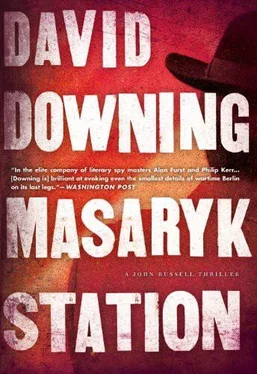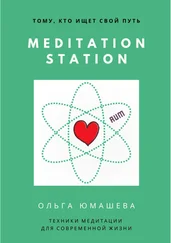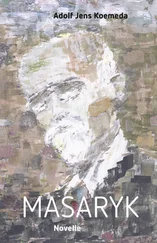David Downing - Masaryk Station
Здесь есть возможность читать онлайн «David Downing - Masaryk Station» весь текст электронной книги совершенно бесплатно (целиком полную версию без сокращений). В некоторых случаях можно слушать аудио, скачать через торрент в формате fb2 и присутствует краткое содержание. Год выпуска: 2013, ISBN: 2013, Издательство: Soho Press, Жанр: Шпионский детектив, на английском языке. Описание произведения, (предисловие) а так же отзывы посетителей доступны на портале библиотеки ЛибКат.
- Название:Masaryk Station
- Автор:
- Издательство:Soho Press
- Жанр:
- Год:2013
- ISBN:9781616952228
- Рейтинг книги:4 / 5. Голосов: 1
-
Избранное:Добавить в избранное
- Отзывы:
-
Ваша оценка:
- 80
- 1
- 2
- 3
- 4
- 5
Masaryk Station: краткое содержание, описание и аннотация
Предлагаем к чтению аннотацию, описание, краткое содержание или предисловие (зависит от того, что написал сам автор книги «Masaryk Station»). Если вы не нашли необходимую информацию о книге — напишите в комментариях, мы постараемся отыскать её.
Masaryk Station — читать онлайн бесплатно полную книгу (весь текст) целиком
Ниже представлен текст книги, разбитый по страницам. Система сохранения места последней прочитанной страницы, позволяет с удобством читать онлайн бесплатно книгу «Masaryk Station», без необходимости каждый раз заново искать на чём Вы остановились. Поставьте закладку, и сможете в любой момент перейти на страницу, на которой закончили чтение.
Интервал:
Закладка:
By this time the number of people waiting for the tram exceeded its capacity, but the only alternative was a six-mile walk. Two Soviet soldiers were standing on the far pavement, ogling a young woman in the queue. She was aware of their attention, Effi noticed, and was looking worried. The soldiers hadn’t yet said or done anything, but of course they didn’t need to-the legacy of the mass rapes that followed the capture of the city was still very much in most women’s minds. And even now, there was nothing to stop those two men walking across the street and simply taking the girl away. The Soviets had no compunction about abducting people from other sectors, and this was their own.
Effi walked over to the young woman, and stood between her and the soldiers. ‘Try and ignore them,’ she urged.
‘That’s easy to say,’ the girl said. ‘I have to get the tram here every day after work, and most days they’re there.’
‘Well, if they haven’t done anything yet, they’re probably too nervous,’ Effi encouraged her. ‘But you could try another way home.’
‘I could. But I don’t see why I should have to.’
‘No,’ Effi agreed.
Two trams arrived in tandem, and sucked up most of the waiting crowd. Effi stood in the crowded aisle, catching glimpses of the still-ruined city, asking herself how long it would be before rebuilding started in earnest, before the foreign occupiers all went home, before it was safe for a woman to walk the streets. She knew what John would say: ‘Don’t hold your breath.’
She got off on Ku’damm, and walked up Fasanen Strasse to the flat which Bill Carnforth had procured for Zarah. It was on the first floor of the middle house in an undamaged row of five, had four spacious rooms, and was only a few minutes’ walk from Effi’s own apartment on Carmer Strasse.
Zarah was cooking dinner in one of her prettiest dresses. Like most Berliners she had been on a forced diet for several years, and in her case the benefits had almost outweighed the cost-she looked better than she had since her twenties. Through the living door Effi could see Lothar and Rosa hunched over their homework.
‘How was it?’ her sister asked.
‘Depressing. Are you going out with Bill tonight?’
‘I hope so. I’ve cooked you and Rosa dinner in the hope that you’ll babysit Lothar.’
‘Oh all right.’
‘I won’t be late.’
‘I said all right.’
‘I don’t know why you don’t both move in while John’s away. There’s plenty of room.’
‘I … I don’t want to move Rosa again. And John should be back soon.’
‘Have you heard from him?’
‘No, but they can’t keep him down there forever.’
Waking up alone, Gerhard Strohm remembered that Annaliese was on early shift that week. She must have left at least an hour earlier, but her side of the bed was still warm.
He clambered out, walked to the window and drew back the makeshift curtain. The previous evening’s snow had melted away, and the sun was shining in a clear blue sky. Maybe spring had arrived at last.
He made himself a small pot of coffee-one Party privilege that he would find hard to give up-and stood by the window as he sipped from the enamel mug, watching the activity on the street below. The damaged houses opposite were finally being demolished, prior to replacement, and a team of men were piling rubble into three horse-drawn carts. A year ago the workers would all have been women. This had to be progress, of a sort.
Coffee finished, Strohm washed and dressed, tying a tie in front of the bathroom mirror with his usual lack of enthusiasm. He wasn’t sure why he found the ritual such an anathema. Was it that he’d spent the first fifteen years of his working life in ordinary working clothes, and couldn’t get used to looking smart? Or had spending the first ten years of his life in America-until his parents’ deaths had seen him repatriated-given him a lifelong penchant for informality? Whichever it was, it would no longer do. Party officials were supposed to set an example, particularly the high-ranking ones like himself.
Outside it was colder than he’d expected-the horses’ breath should have told him as much-and he set out on his two-kilometre walk to work at a brisker pace than usual. He could have taken the U-Bahn, but Strohm welcomed the exercise, and the chance each day to notice signs of the city’s revival. Some houses here, some offices there, a pothole filled in, a leaking water main repaired. This might be the American sector, but these days Germans ran the local town hall, Social Democrats and Communists in the main, and they were putting Berlin back together.
He worked in the old Reichsbahn Head Office building on Hallesches Ufer which, considering its location so close to the Anhalter Station and goods yards, had suffered remarkably little from the bombing. What damage there was had been quickly repaired by their Soviet liberators, who still ran all of eastern Germany’s railways from the building, despite its location in the American sector. Strohm, like most senior officials who had spent the war either underground or in a camp, had an office on the second floor, overlooking the Landwehrkanal and the elevated tracks running into Potsdamer Station. The third floor was home to the highest echelon of the railway administration, almost all of them comrades now returned from years of exile in Moscow.
Strohm had barely sat down when his secretary, a young comrade from Leipzig, put her head around the door and told him a Red Star meeting had just been called. As he took the stairs up to the Director’s office, Strohm wondered what the Russians wanted this time. Red Star meetings were only open to Party members above a certain grade.
The conference room was next door to the Director’s office, and most of Strohm’s fellow deputies were already seated around the table. There was only one Russian present, Alexander Klementeyev, the so-called Sovcom Liaison Officer, whom everyone knew was MGB, or whatever it was they called themselves these days.
The Director Arnold Marohn had the usual pained look on his face, a consequence, he had once told Strohm, of eating and drinking like a Russian for six long years-his stomach had never recovered. Now, he outlined the reasons for the meeting, with occasional glances in Klementeyev’s direction, as if keen that no one present should be under any illusion as to who had really called it. But no one was, Strohm thought; they all knew the score. The differences lay in how much they liked it.
Orders had arrived from Karlshorst, the southeastern suburb where the Soviets had their headquarters, to make rail travel between Berlin and the Western zones significantly more difficult. Traffic on the only autobahn had already been seriously affected by the closure of the emergency stations earlier that week, and now it was the turn of the railways. More vehicles would be subject to inspection, more discovered to be unsafe. There would be fewer officials available to check papers, and their increased conscientiousness should guarantee longer queues and delays. And there was more-each department was asked to prepare a series of appropriately graded measures, with everything from minor inconvenience to a total cessation of traffic in mind.
‘Are these measures likely to be permanent?’ Uli Trenkel asked, not bothering to conceal his disapproval. Like Strohm, he had spent the Nazi years in Germany, and they shared a jaundiced view of the Russians.
Marohn looked at Klementeyev.
‘There are no plans to make them so,’ the Russian said carefully. ‘A little pressure, to see how the Americans and British react-that’s all we’re anticipating at the present.’ Klementeyev beamed at the assembled company. ‘Not too difficult, I’m sure.’
Читать дальшеИнтервал:
Закладка:
Похожие книги на «Masaryk Station»
Представляем Вашему вниманию похожие книги на «Masaryk Station» списком для выбора. Мы отобрали схожую по названию и смыслу литературу в надежде предоставить читателям больше вариантов отыскать новые, интересные, ещё непрочитанные произведения.
Обсуждение, отзывы о книге «Masaryk Station» и просто собственные мнения читателей. Оставьте ваши комментарии, напишите, что Вы думаете о произведении, его смысле или главных героях. Укажите что конкретно понравилось, а что нет, и почему Вы так считаете.












